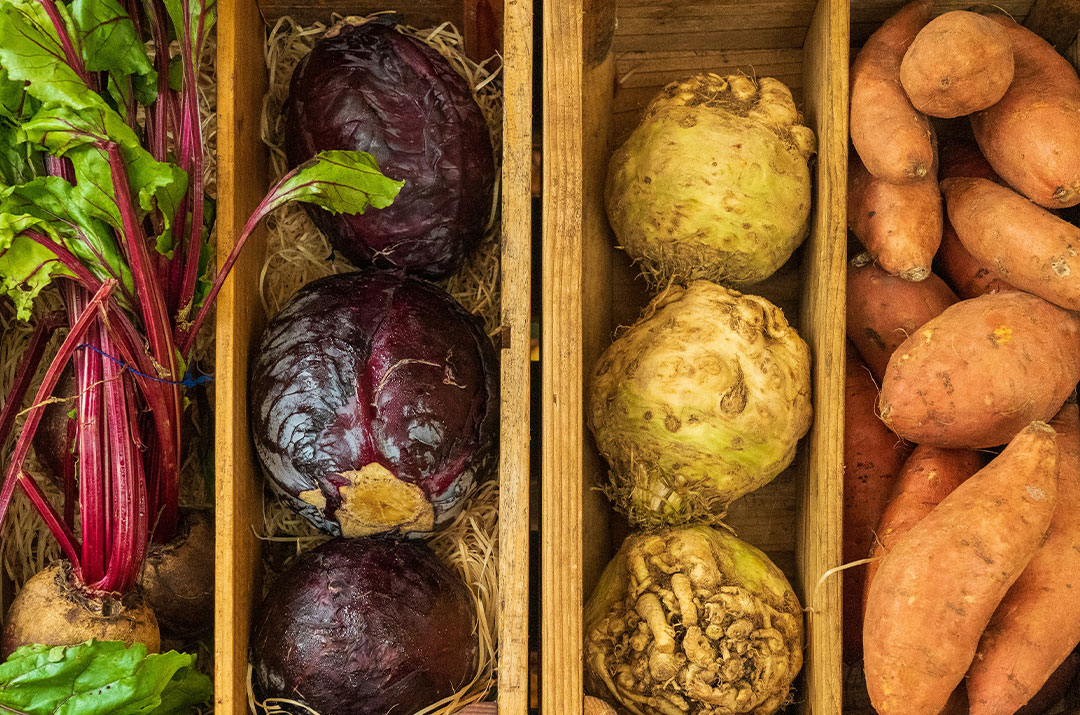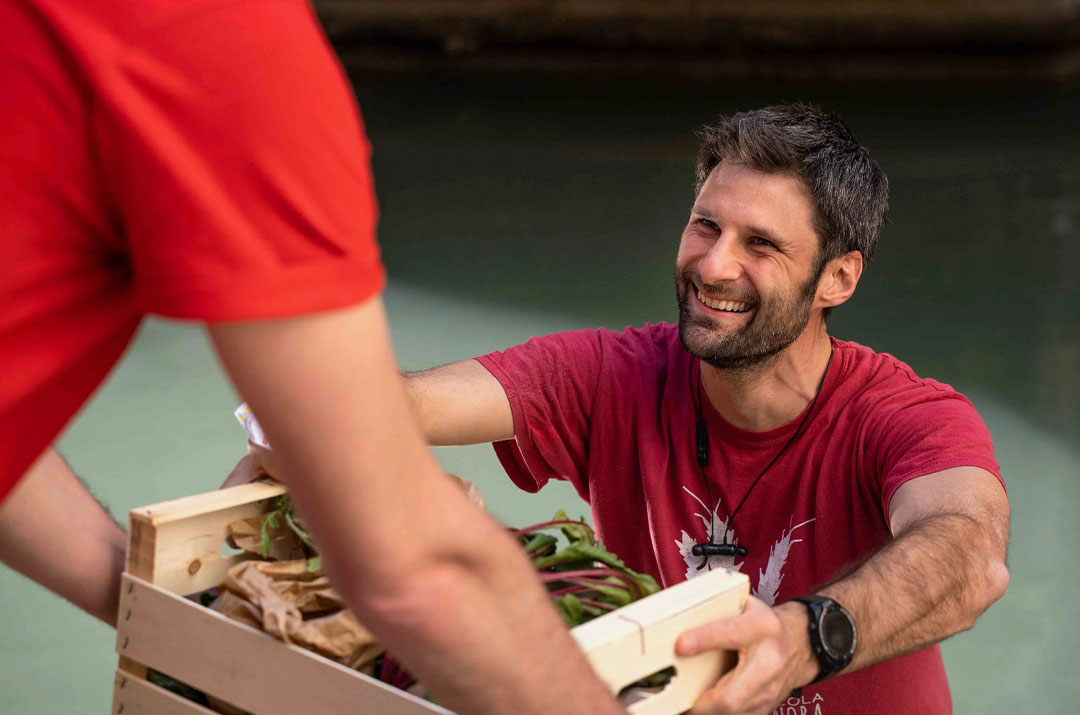DANIELA LOMBARDO
Clothes Designer and Founder of Patience
For Daniela Lombardo, designer and seamstress at handmade production and corner studio-shop Patience, living in Venice requires “a certain type of understanding and sensibility.” Aware of the challenges posed by the city’s complex logistics and aching to travel, Daniela left Venice a few times in the past and said that “circumstances, more than conscious decisions,” brought her back. “I still believe in the value of fighting for a city in which tourism has become a problem and the environmental and social issues persist, but I also appreciate the benefits of living here now: walking, beauty, nature, community. I hope that the city and its people will find a way to stay vibrant while preserving their slow pace and sense of togetherness.”
Creatively, she feels that growing up in Venice instilled in her a deep appreciation for beauty, with its colors and shapes influencing her creative vision and finding large representation in her collections. She has many beloved corners in the city––wells, streets, columns––and still, she loves nothing more than being out in the open with a barchino. “We don’t stress enough the fact that Venice is part of an extended, wonderful, delicate lagoon––a silent and yet ever-present, ever-changing natural element.”
Daniela started Patience in 2020 so she could share her passion for sustainable fashion and her creations with people interested in garments produced through a slow process and a waste-not-want-not approach. “Clothing is a necessity in our everyday life: ethical choices in this realm have a great impact.” The project developed after a trip to India, where she had the chance to gather a series of natural fabrics produced by small cooperatives. It quickly grew into a studio-shop––a bottega located in the heart of Castello. “I love seeing how my clothes can reach a wide variety of people. My clients are locals, but there are also many passers-by who find me by chance and come into the shop because they’re attracted by the colors of the fabrics.” Her space has also become a place for conversations around common values and about the environmental and humanitarian impact of fast fashion.
And when it comes to local artisans, she sees that there has been a return to artisanship in recent years, with young people opening studios or pursuing traditional crafts. “I feel like there is a want, and need, to cooperate and influence each other, which evolves into an opening and sharing between different arts. This is a positive sign for the growth and well-being of the trade in Venice and beyond.”
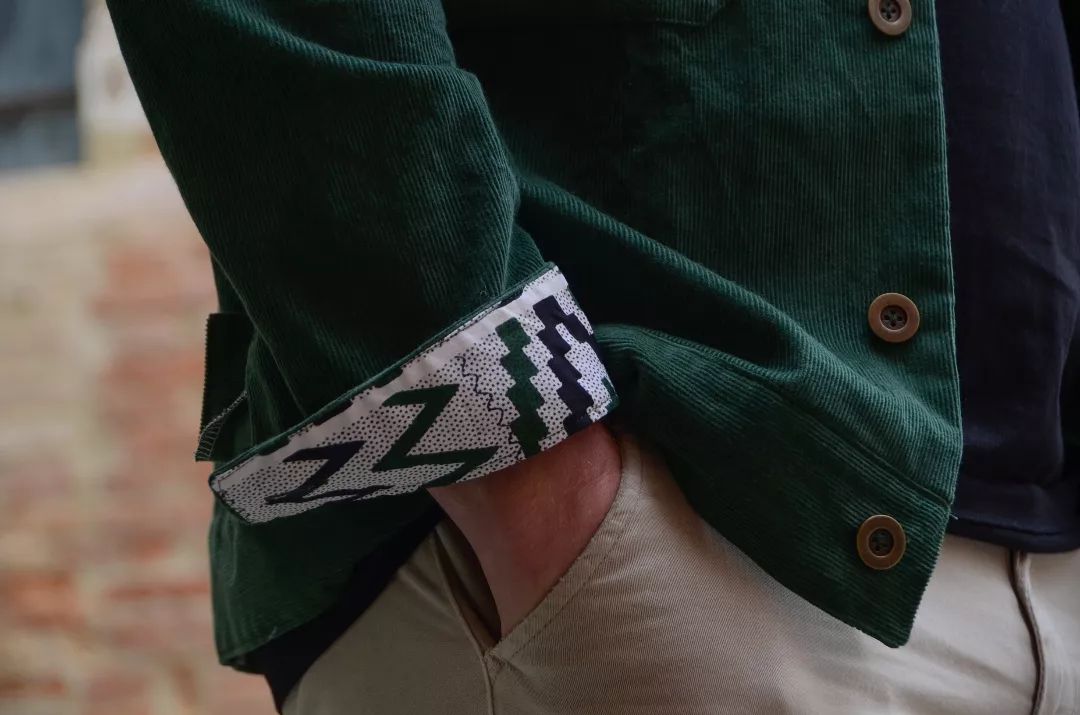
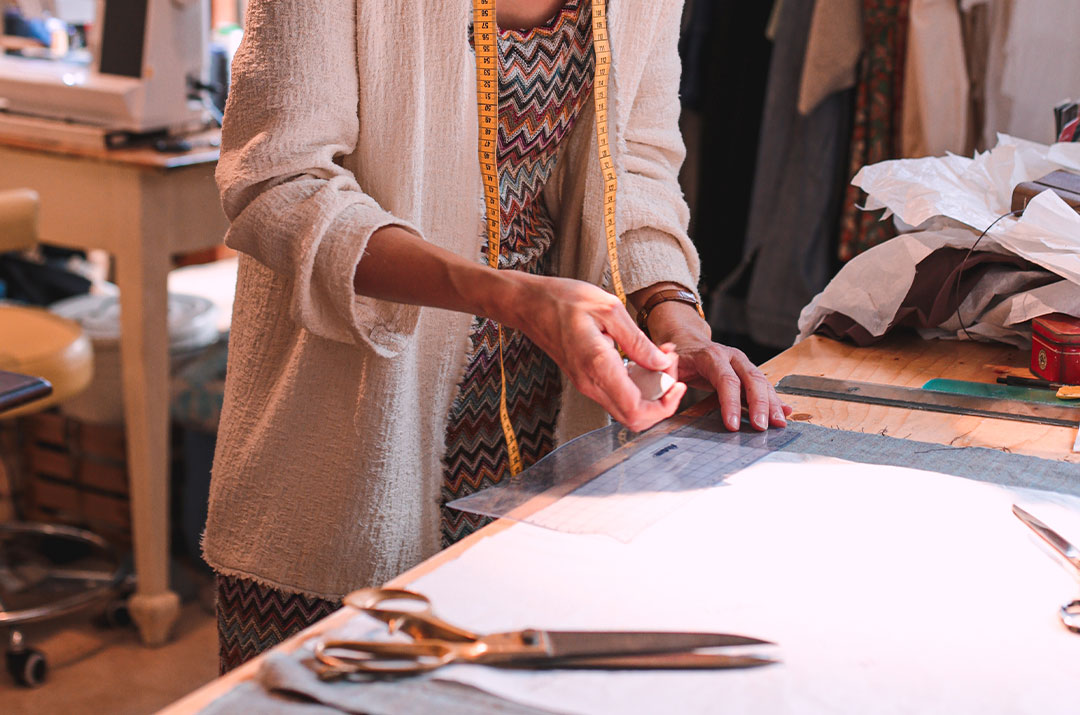
Photo by Marta Formentello
SUSANNA FABRIS
Art Events Manager
“Growing up in Venice generates this sense of awareness and consciousness, of privilege and responsibility, of being a part of something special.” And still, like many young Venetians of her generation, Susanna Fabris needed to cut the bond and escape the sometimes stifling nature of a city that can be very village-like in size and provincial in mentality. “I decided that I needed to inspect my identity elsewhere for a while. Being away renewed my perspective completely and helped me see more clearly.”
The genuine lifestyle and social connections, plus the interesting professional opportunities in the art world––Susanna’s field of work is in event organization and management for international contemporary and visual art exhibitions––were major matters of reconsideration. “All of a sudden, being Venetian felt more like a choice and less like an imposed fate. Now, I can finally feel that I’m not just a part of the history of the city; I am consciously choosing to live here.” This embedded sense of belonging encompasses all aspects of life in Venice and puts any other challenge––social, financial, political––into perspective. “I feel good here. And I feel invested. This is what is keeping me despite all odds. Now, we need a local administration that sees Venice as a living city, not just a place to exploit.”
Venice has deeply influenced Susanna’s eye and sensibility: “You develop a devotion to beauty and a desire for seeking an aesthetic engagement in every experience.” In Venice, one is literally surrounded by art––heritage, exhibitions, projects, events. And yet the art world can also feel very unattainable and happening behind closed doors. “At one point, I really just wanted to get a closer look and see what was going on behind the scenes. It wasn’t easy because it’s a very competitive and exclusive field, but I stuck around and I grew as a professional thanks to my unique insight into the city. It’s a specialized knowledge that’s hard to acquire unless you’re born here. It feels rare and it’s appreciated by colleagues and clients alike.”
Living in a place that is at the heart of some of the most important art exhibitions in the world and that preserves a small-scale, out-of-time nature is what she likes the most about her life now. “I love walking at the edges. Pretending I am getting lost. Having the time to explore a part of the city I feel I am not strongly familiar with. Take the time to check out a small exhibition I still did not manage to see. Having a drink outside, a simple lunch sans reservations, or a boat ride across the lagoon on a warm summer day. Venice is the only city in the world where I could actually squeeze in all this in one day.”
While for the art world, she hopes for international projects to create a dialogue and valuable and sustainable exchanges that are beneficial to the city at large.
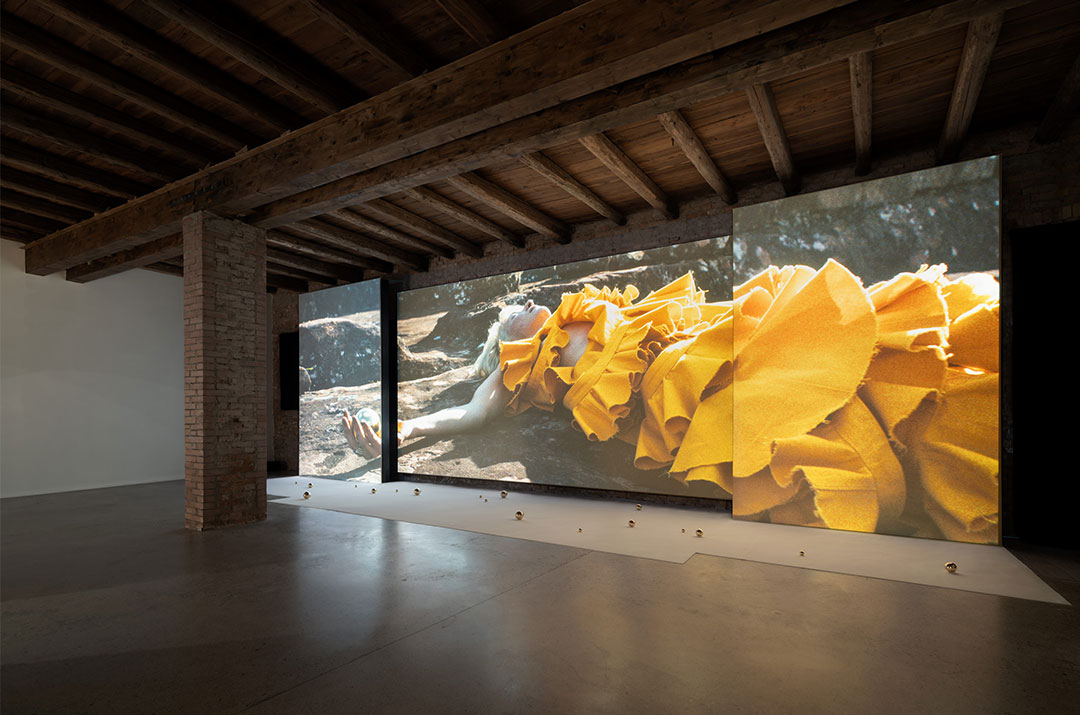
Photo by Ugo Carmeni
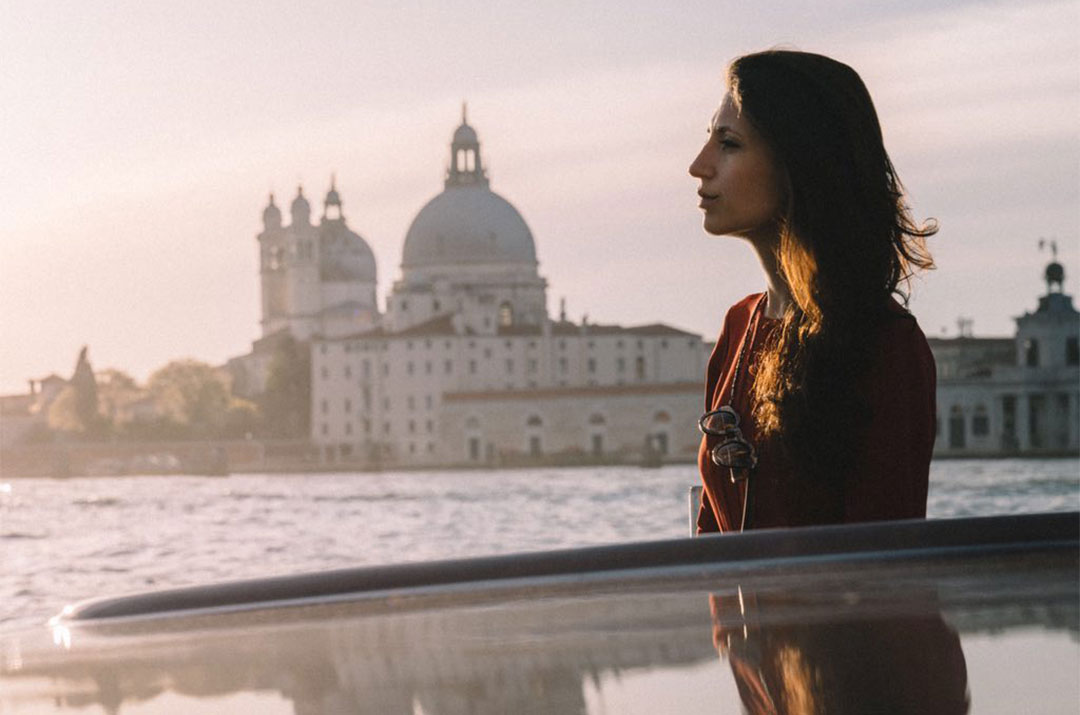
Photo by Marco Valmarana
GIULIA VECCHIATO
Jewel Artist, Founder of Suri Jewelry
“I can only remain in Venice by leaving often.” Making time and space to leave Venice is crucial to work and life balance, Giulia Vecchiato tells me, adding that this balance has silenced her restlessness and made her see Venice as a solid base for her practice while also opening her perspective on how to be an artist. “It’s a perspective I was missing here and now I’m trying to live my life with my eyes, head, and soul wide open.”
The origin of her jewelry studio and brand, SURI Jewelry, was “thanks to a leap of faith.” While she was specializing in sculpture at the Fine Arts Academy in Venice, her teacher urged her to “’think small’ because [her] pieces were starting to take up too much space.”
“That’s when I thought about jewelry as sculpture on a micro scale,” Giulia explains. “So I went on to study traditional goldsmithing in Vicenza and then, in 2019, I decided to invest my small savings in some tools and set up a workshop in my old living room in Venice. I started taking commissions, mostly through word of mouth. And so it began, first as a side gig and then, in 2020, as a full-time endeavor. It was the best decision of my life. It’s now my passion, my nourishment, and my freedom.”
Since then, SURI has collaborated on custom statement collections with many prominent designers and artists; has been featured in publications such as Vogue, Vanity Fair, and iD Magazine; and has participated in several exhibitions, including NYC Jewelry Week, Tokyo Metropolitan Art Museum, RVNHUS in Denmark, AA collected in Vienna, and Vitraria in Venice. “I’m not strictly an artisan, but rather an artist whose form of expression is through contemporary jewelry. So whoever approaches me with a project or a commission––be it a fashion designer or a private client––understands the value of an object that is a source of meaning. Many seek custom-made pieces that can tell part of their story, convey their desires, or welcome their heirloom gems. My jewels are vehicles of identity and empower those who wear them.”
Born in Cannaregio, Giulia has lived in the neighborhood all her life. She describes her relationship with Venice as complex yet peaceful. “I love Venice deeply, but choosing to stay hasn’t always been easy. It’s a form of resistance. Thankfully, in time, I’ve created a daily routine that enables me to nurture my creativity and preserve my positive feelings towards the city. Water, in particular, is a key element in my life here: slow, constant, omnipresent, shiny, silent.” An early riser, she gets up before dawn and starts running. “It’s only me, the street cleaners and the fruit and veg vendors at that point. I love seeing the sun rise over Sant’Elena as I get there.”
Now, she hopes Venice will keep attracting brilliant minds who are able to create value, meaning, and connections. “Venice can be an ideal city, a model for the future in terms of sustainability. I don’t think we stress this enough. I hope it can return to feeding on culture and open up to new projects and new energy. We need workshops, we need studios, labs, co-working spaces, artist’s residences. This is what creates new fires, new economies, and new life.”
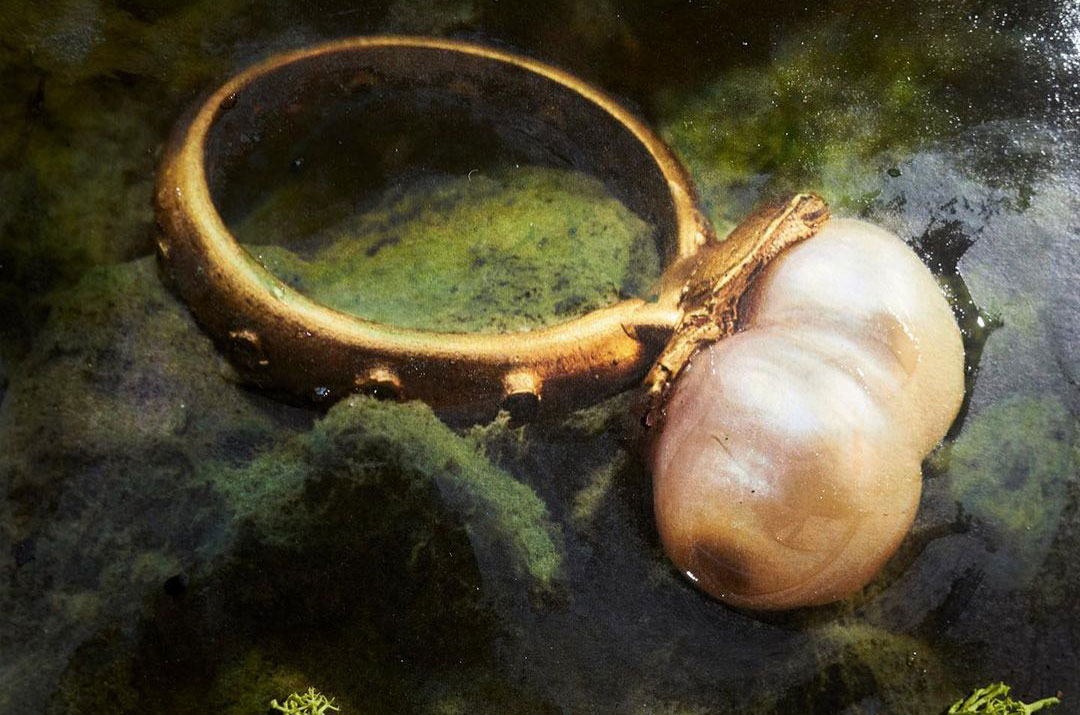
Photo by Stefania Zanetti
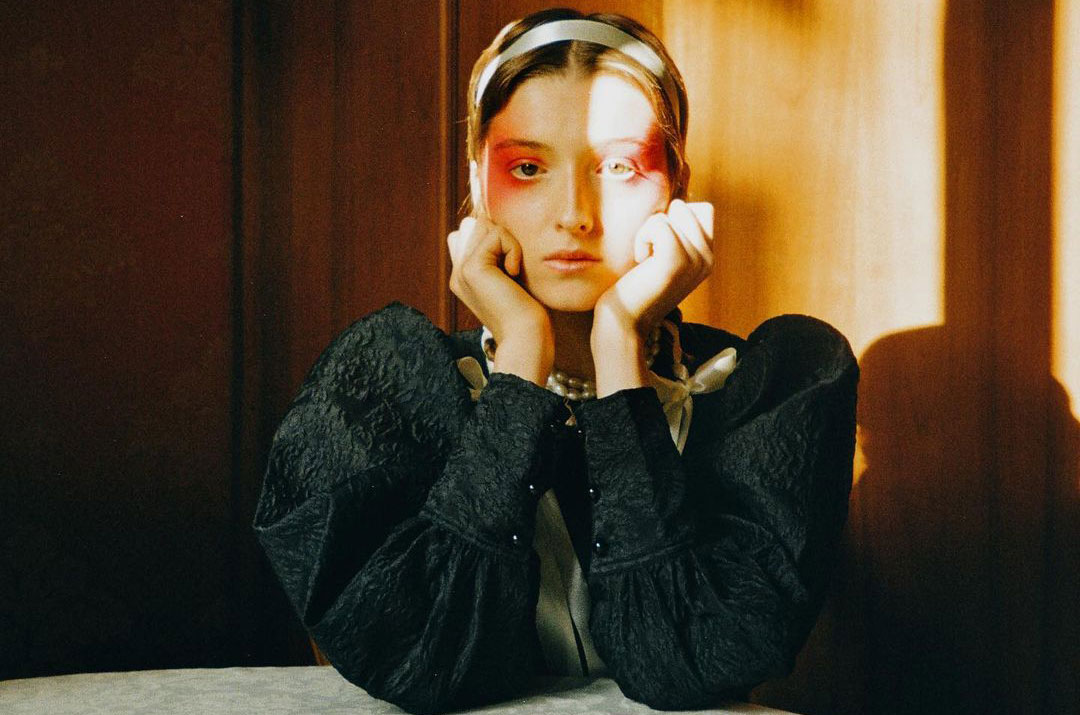
Photo by Arianna Angelini
GIOVANNI MONTANARO
Writer and Lawyer
“I want to see more bookshops opening. And then, I want Venetians to stop complaining all the time,” says Giovanni Montanaro, writer and author of seven novels, some of which are inspired by his Venetian roots. “I often write about Venice because it’s such an important theme, and also because I find it very stimulating. In the case of The Bookseller of Venice, for instance, I was taken aback by the disaster of the acqua granda, the extreme high tide of November 2019. I decided to start writing right away, not just because of the powerful nature of that event, but also because of the inspiring and moving reaction of the Venetians, which I thought no one was seeing. Some books have a certain urgency to them.”
Even while being very invested in the story of Venice, he often feels the need to take a step back from this ever-encompassing subject and write about other things. “Venice can be very invasive, and it’d be wrong to be so completely centered around it. Venetians often end up talking about it all the time. It can become a bit of an illness. On the other hand, Venice is a distillation of beauty and timelessness, so it’s only natural that any form of art seeks to emulate it or be inspired by it.”
Born in 1983, he saw Venice change radically before his eyes. “There are many more tourists and far fewer residents, and I think that’s entirely the problem. The city is rich, it’s magnificent, but it lost talents, professionals, a sense of direction. And even so, it remains a great place to live, put down an anchor, think about the future. And I will never stop feeling lucky to be here.”
When not writing, Giovanni works as a lawyer in the nearby town of Padova, where he also studied. “I like driving around. I like taking trips and traveling for work and leisure, but then again, I always return to Venice. This is where my roots, my rest, and my strength is. I love being in contact with water, entering a museum, a church, walking, feeling at ease. I don’t belong anywhere else. To leave it would be to uproot me, like a plant that won’t accept a different vase, and fade.” He is also very active in the cultural and civic life of the city, an activity he finds natural and entertaining and in which he finds a sense of purpose and a feeling of community. “I think Venice silently asks to be taken care of by its residents, and they in return like to take care of it as you’d do with a fragile creature.”
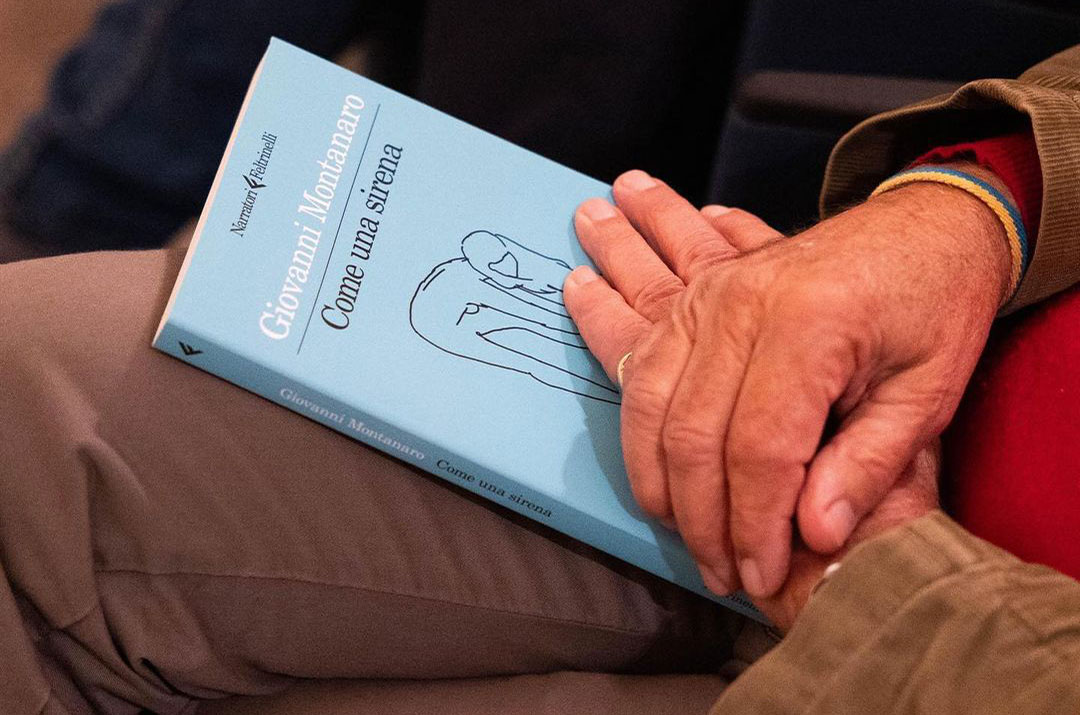
Courtesy of Una Collina di Libri

MARTA CANINO
Founder of FieAManetta
“It may seem strange, but in a city that moves by boat, very few women are seen as skilled boat drivers; it’s still a world that’s overwhelmingly dominated by men,” Marta Canino tells me. It was this that motivated her to start FieAManetta, a boating school open to everyone, in 2020.
Marta Canino was born in Venice but grew up in Egypt, Rome, and Mozambique, where her father was working as a hydrogeologist and her mother was teaching as part of a project by the Municipality of Venice. “I always saw Venice as a safe harbor in between transfers––a place of play and discovery.” A love of nature has been Marta’s leitmotif for life. Not unlike when she was living in the savanna watching animals in the wild, she’d go out on a boat with her uncle to discover the flora and fauna of unexplored areas of the lagoon through the passing seasons. This is also how Marta learnt to drive a boat at a young age, a skill that proved particularly promising. Indeed, after her family finally settled down in Venice, Marta fulfilled her passion for water by joining the local sailing clubs as a competitive sailor, a sport that gave her the mindset, discipline, and dedication to face her boating project years later during the harsh months of the global pandemic.
FieAManetta is now a sports association recognised by CONI and which counts, amongst its institutional activities, license-free boat driving, fishing, and radio-controlled motor boating. “For us, a fundamental objective is to take our boating education to the local public schools. Last year, we were able to offer a free course to 20 young people between the ages of 14 and 18, with extraordinary results. Sitting alongside those who learn, following their technical progress, building experience together, and sharing successes––all these things create bonds and a conscious community, and for me, there is nothing more fulfilling than seeing our students become independent.”
The FieAManetta project has redefined Marta’s perspective on Venice and has given her a reason to stay. Through the association, she met many like-minded people who moved to Venice wishing for a life with stronger social bonds and a more human dimension. “In truth, it made me realize that I also love being able to take my son to school, have coffee with my friends, and shop in small businesses whose name is a surname and not a brand. I like this slower life.”
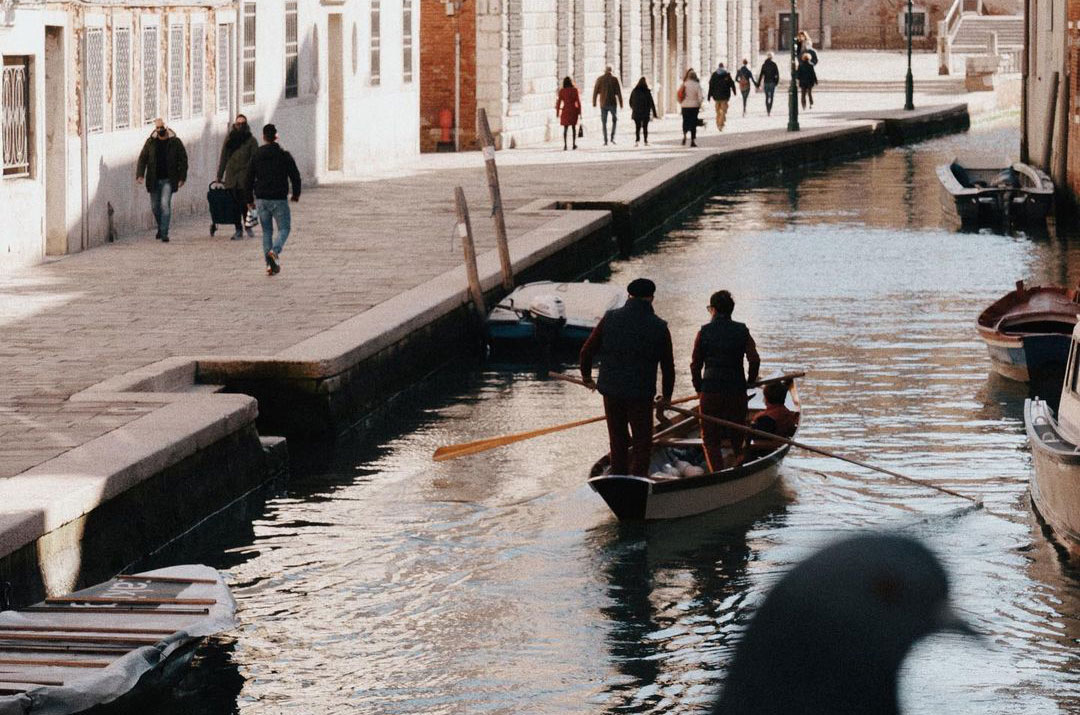
Photography by Marco Valmarana
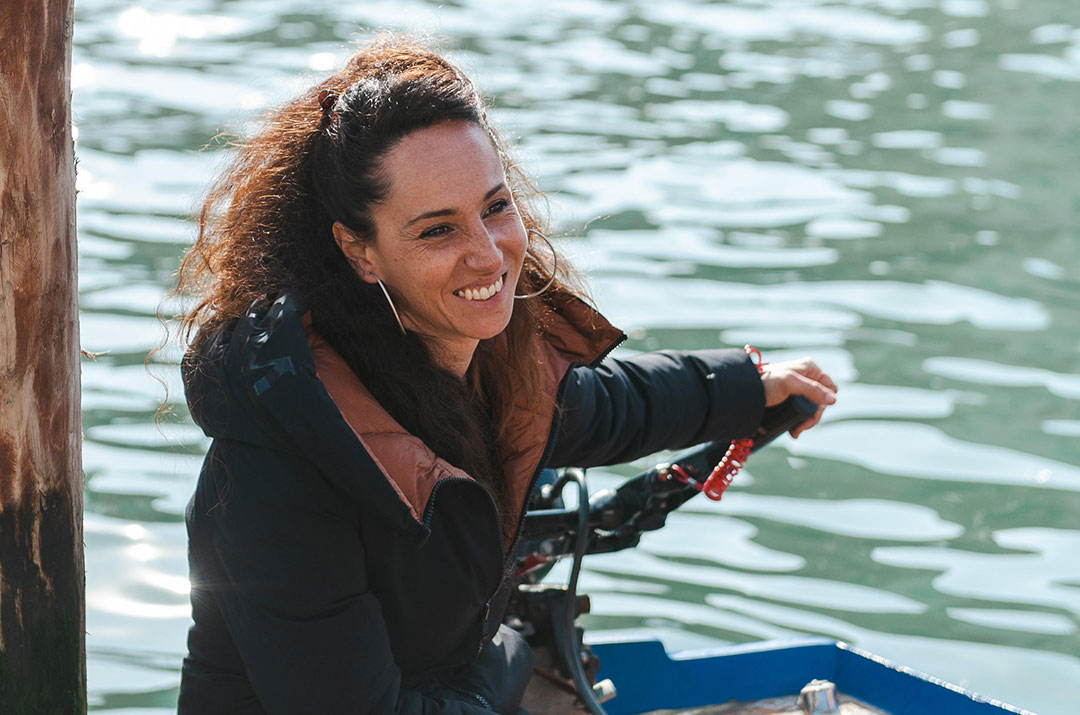
Photo by Valeria Necchio
FEDERICO MANTOVAN
Rower and founder of Donna Gnora
Federico Mantovan is a Venetian from the mainland. Born in Venice, he grew up in the nearby countryside, where his parents resettled to lead a greener and more bucolic life. “I love Venice and much of my life is spent there. Still, when the time came for my now ex-partner and me to buy a house, the city posed quite some challenges in terms of availability and budget, so we ended up buying on the mainland, where I have my vegetable gardens (in Noale) and shop (in Marghera).”
Federico’s main endeavor is Donna Gnora, a farm which grows and delivers organic seasonal vegetables. The project started in 2007 as a sourcing and retail business selling traditional products from producers around Italy and naturally evolved into a farm in 2009. “I wanted to produce directly and understand the dynamics and efforts that went into making a preserve or good bread.” In the following years, Federico became an “apprentice” farmer, learning to hoe, sow, and transplant. “I learned how much knowledge is needed to plan a vegetable garden and to avoid resorting to the use of synthetic chemicals—pesticides, herbicides, and fertilizers.”
As the project grew thanks to friends, family, and word of mouth, Federico involved other agricultural companies (through the association Olterconfin) who were close to Donna Gnora both geographically and culturally. “We want to turn our products into a way to talk about the environment. We are convinced that food, agriculture, culture, and ecology cannot be separate. And, just as we believe we shouldn’t compromise our children’s future by using chemicals in the fields, we also want our deliveries to have a low environmental impact.” Deliveries are done in boxes directly to people’s homes, with a methane van on the mainland and with a rowboat in Venice. In time, Federico became extremely passionate about rowing as well as about the woodwork and building skills that go into making a rowboat. “I love working with wood; just like plants, it’s a living material and I find it very fascinating.”
When he’s not working, Federico loves immersing himself in the realest Venice by going off on a rowing session to Poveglia or Forte Sant’Andrea, exploring the lagoon as a whole, with its beautiful barene and its serenity. He also participates actively in Venice’s civic life by taking part in sports associations and cultural activities such as Cinema Galleggiante.
